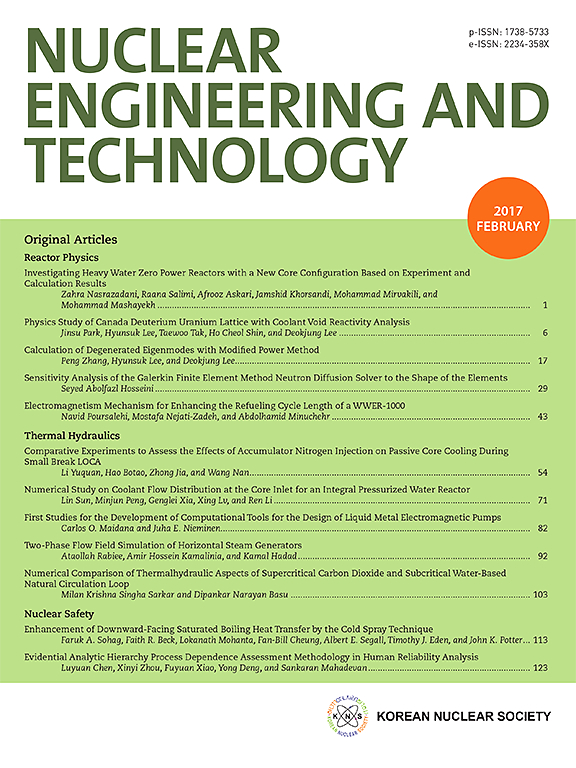Synthetic data for radioactive waste management: A comparative study for disused sealed radioactive sources in Indonesia
IF 2.6
3区 工程技术
Q1 NUCLEAR SCIENCE & TECHNOLOGY
引用次数: 0
Abstract
This study addresses the need to generate reliable synthetic data in radioactive waste management, specifically on DSRSwhich will be integrated into a machine learning-based data management system focusing on Indonesia's Radioactive Waste Treatment Installation. Five distinct synthetic data generation methods such as Monte Carlo Gaussian, Data Augmentation, Copula Models, Bayesian Network, and VAEsrs are evaluated for their efficacy in replicating the statistical characteristics of confidential DSRS data. The evaluation criteria include the methods' ability to emulate the original data distribution, handle outliers, and their implications for DSRS management in predictive modelling. Bayesian Networks closely match the original dataset (with MRE = 17.60 %, Kolmogorov-Smirnov Dn = 0.03, p-value = 0.31), making them the most effective method for generating synthetic data with high mean consistency. The results show Bayesian Network methods is the most suitable and effective methods for generating synthetic data that closely aligns with the original dataset in terms of mean consistency. These findings demonstrate that synthetic data can improve DSRS management, guiding future research and regulatory compliance.
求助全文
约1分钟内获得全文
求助全文
来源期刊

Nuclear Engineering and Technology
工程技术-核科学技术
CiteScore
4.80
自引率
7.40%
发文量
431
审稿时长
3.5 months
期刊介绍:
Nuclear Engineering and Technology (NET), an international journal of the Korean Nuclear Society (KNS), publishes peer-reviewed papers on original research, ideas and developments in all areas of the field of nuclear science and technology. NET bimonthly publishes original articles, reviews, and technical notes. The journal is listed in the Science Citation Index Expanded (SCIE) of Thomson Reuters.
NET covers all fields for peaceful utilization of nuclear energy and radiation as follows:
1) Reactor Physics
2) Thermal Hydraulics
3) Nuclear Safety
4) Nuclear I&C
5) Nuclear Physics, Fusion, and Laser Technology
6) Nuclear Fuel Cycle and Radioactive Waste Management
7) Nuclear Fuel and Reactor Materials
8) Radiation Application
9) Radiation Protection
10) Nuclear Structural Analysis and Plant Management & Maintenance
11) Nuclear Policy, Economics, and Human Resource Development
 求助内容:
求助内容: 应助结果提醒方式:
应助结果提醒方式:


